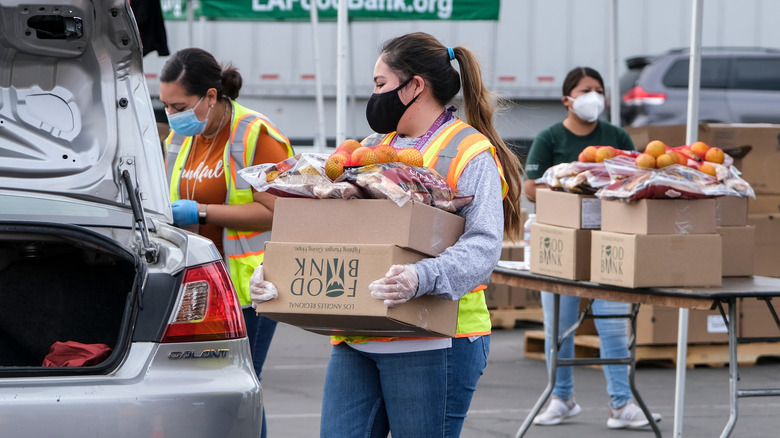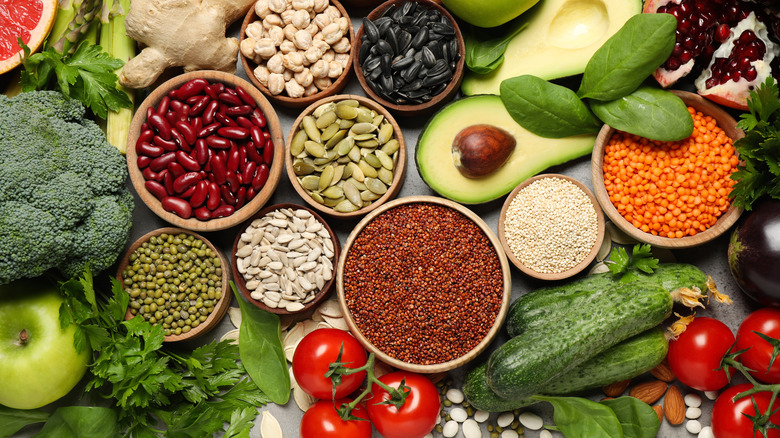New Data Finds 10% Of Households In The US Have Faced Food Insecurity
For people with access to massive grocery stores and endless food delivery options, it's easy to forget that food insecurity in America exists. Many Americans may not know where their next meal will come from or how they will feed their family. Food insecurity is a global problem and impacts even in the wealthiest nations, such as the United States. It's a sadly persistent problem and one that keeps many Americans from getting the necessary levels of nutrition.
According to Feeding America, food insecurity happens when a household does not have access to enough food for a healthy, active life for either a short or extended period. In the United States, it's a problem that disproportionately affects women, immigrants, and people of color. The number of people who face food insecurity rose in the wake of the COVID-19 pandemic; a time when far more people than before relied on food banks. The scale of the ongoing problem was enough that The White House hosted a conference on Hunger, Nutrition, and Health in September 2022 (per the U.S. Department of Health and Human Services). During the conference, the Biden-Harris Administration announced $8 billion in new funding for food access and nutrition. Now new data is showing just how extensive food insecurity is in America.
For many Americans healthy food is too expensive and too far away
In an interview with ABC News, Nancy Roman, the president and CEO of Partnership for a Healthier America, outlined American food insecurity challenges. More than 10% of Americans faced food insecurity at some point in 2021, and 1 in 6 either cannot afford good food, must travel excessive distances for it, or deal with both problems at once. Roman adds that inflation has added an extra burden for people struggling with food insecurity. The Guardian reports that in extreme examples, families are going without food entirely, with 274,000 households reporting that they skipped meals or entire days of eating because they did not have the money for groceries.
Still, Roman does see some reasons for optimism, noting that the recent White House conference shone a light on a problem that has gone unaddressed for years and has led to some real momentum in looking for solutions to America's food insecurity crisis. Agreeing with the Biden-Harris Administration's goals, Roman says access to fresh fruits and vegetables is an especially important thing to petition local governments for. While the stubbornness of this issue may be disheartening to hear, increasing awareness is often the first step toward solving a problem. Hopefully, with more institutional support, education, and greater pressure from citizens to tackle food insecurity, we can make the first big steps toward eradicating hunger.

